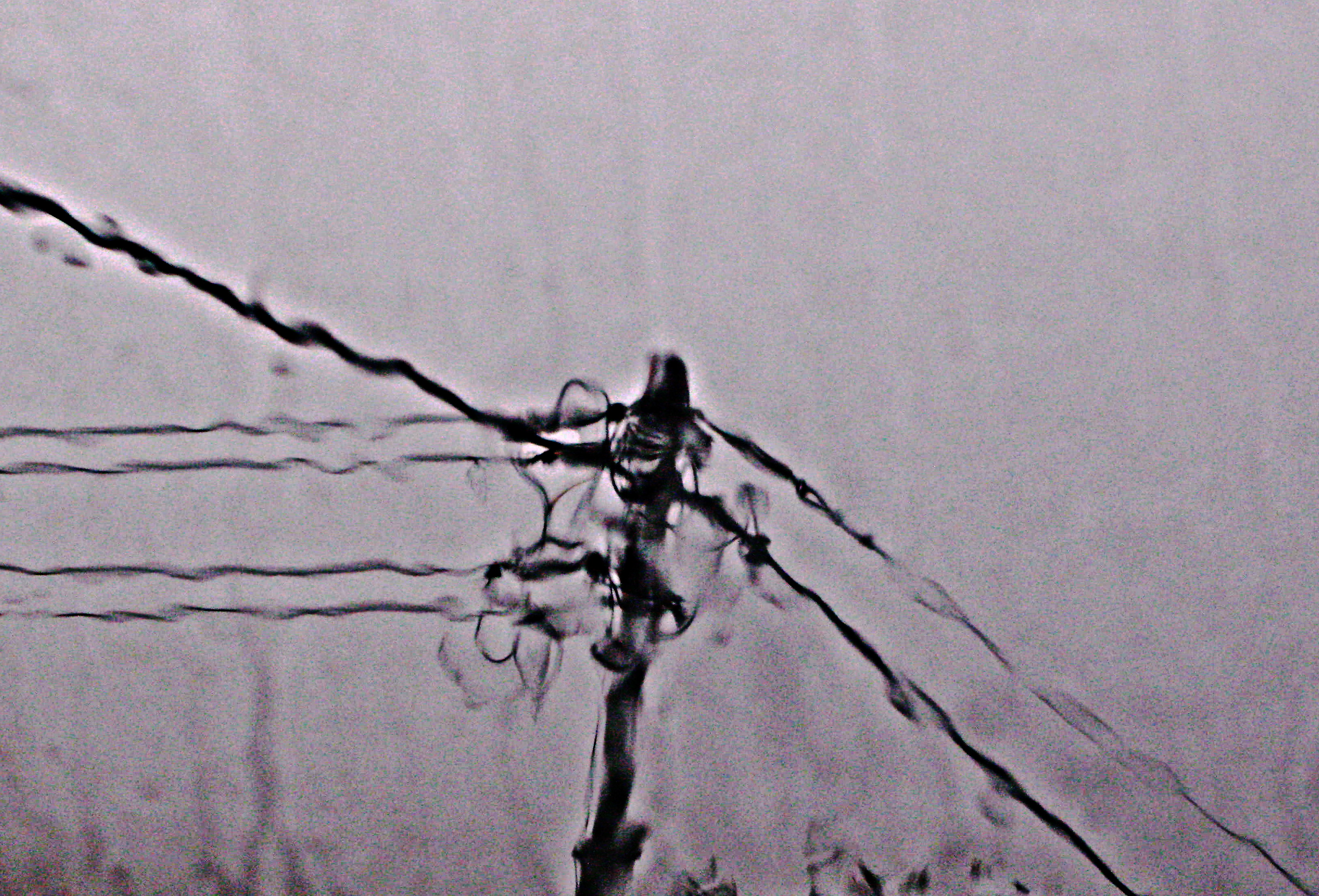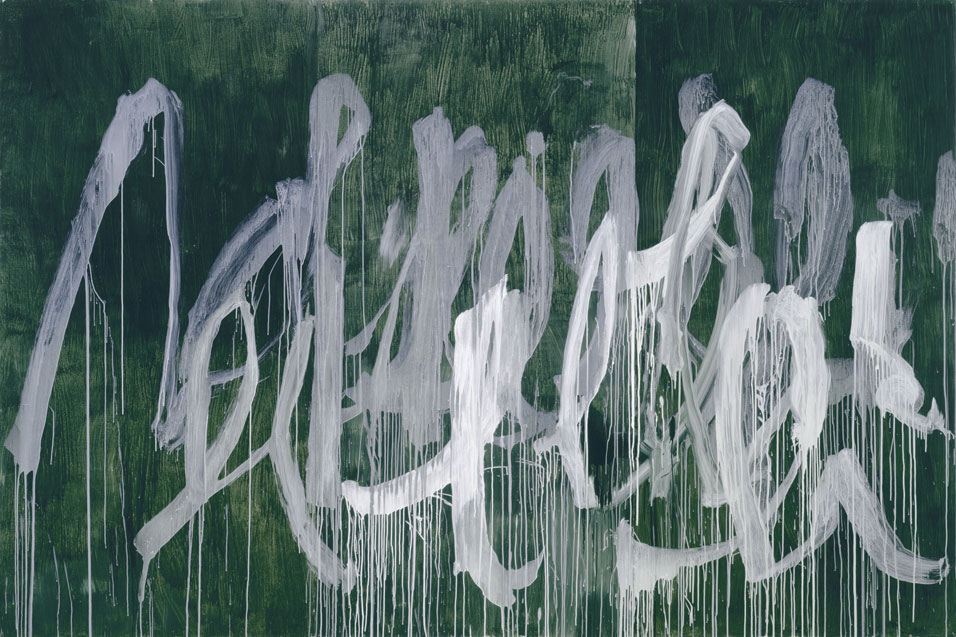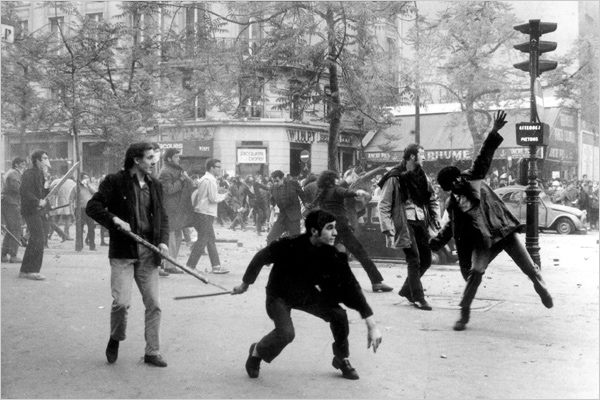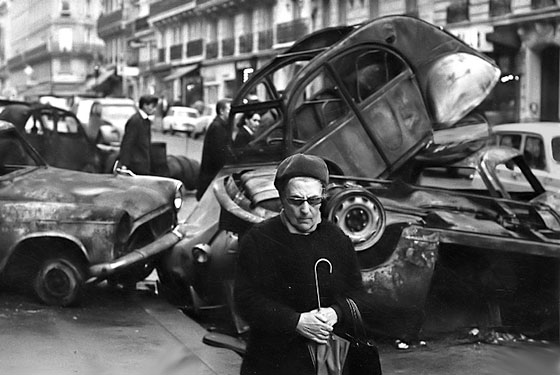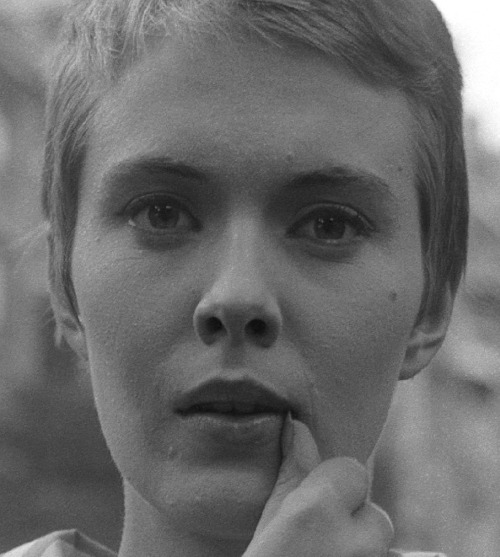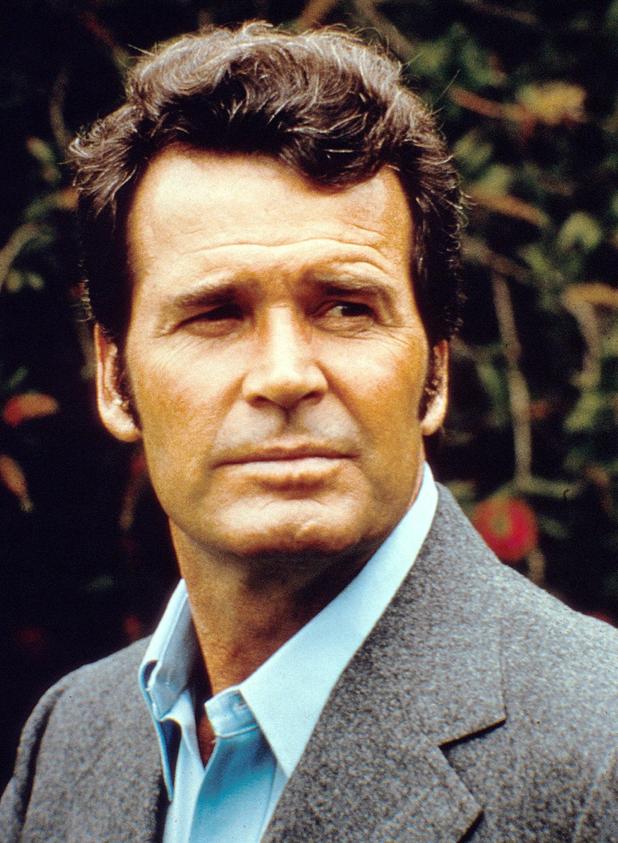Thursday, December 12, 2013
The Recruit
One of my back-burner projects for the past couple of years is a memoir or a series of linked autobiographical essays about my years of quiet desperation trying to be a writer while living in New Orleans in the mid-90s. Green Mountains Review has just published some excerpts in their online edition.
Read them here.
Saturday, November 23, 2013
Fragment
What a pen can make: lines. The sea sees nothing. The computer heats up, rendering. What was given to Henry James: names. Makes a world.
They were neither of them saints. Him especially, but also especially, her. But what makes a saint? To have stood for something, and to have suffered for it. Isn't that enough? Isn't that, at least, something?
The artist chooses his constraints: that is his freedom. But the philosopher? Is she not obligated, simply, to the truth? And thus is the least free of all? The philosopher does not invent, even when she does invent: a voice, a character, a concept. The philosopher constructs a discourse, an elaborate machine for unearthing what she discovers in the day or night. She lives in the brilliant aftermath of intuition.
Wednesday, November 20, 2013
Moths
It is more important
that a proposition be interesting than that it be true.[1]
Begin again. In a new
spirit of pragmatism, asking not
why I am interested in vital materialism, in
modernist poetics, in the dialectic of innocence and experience, in the
phenomenological and ecological implications of taking language and the
imagination as things that obtain, that exist. Accepting that I am interested
in these things, that they are a matter of my temperament, its line or lines of
flight. Asking, instead, what this assemblage of interests can do.
The idea has come to
me that I want to do now is to saturate every atom. I mean to eliminate all
waste, deadness, superfluity: to give the moment whole; whatever it includes.[2]
In my own poetry this assemblage empowers a new practice, a practical poetics to be lived with and explored. Such a poetics undermines the impulse toward the made and returns one’s attention to making. To be always beginning again, with the reader, asking what it is in the moment that poems do.
Say that the moment is
a combination of thought; sensation; the voice of the sea.[3]
Poetry is a practice of magic, of incantation, “a matter of
disturbance, entrance and passion, rather than abracadabra.”[4] A
speech in which the speaker is fully embedded, fully committed. A voice
committed to the moment, to creating and being created by the otherness of what
the poem includes.
Waste, deadness, come
from the inclusion of things that don’t belong to the moment; this appalling
narrative business of the realist: getting on from lunch to dinner: it is
false, unreal, merely conventional.[5]
It is false, unreal, merely conventional: this business of
the realist: how some poetry and much scholarship encases and thwarts
experience. In their insistent proprieties they obscure our vision of the
actual, what William James called “pure experience.”[6]
The actual may be a poem; it may be the western black rhino, declared extinct
last week; it may be my daughter; it may be a feeling or a lure for feeling. We
lose the actual when we lose the adventure of imagination.
The world of wonders
is limited at last to the parent’s will (for will prospers where imagination is
thwarted); intellectual appetites become no more than ambitions; curious minds
become consciences; love, hatred, affection, and cruelty cease to be responses
and become convictions. And the adventure of life becomes a self-improvement
course.[7]
We can, in other words, know nothing in advance. The poem
lies before us. We are implicated if we write it, if we read it. We are willing
subjects in the wrong.
There is a stone chair
on a dais. Seeing it is the King’s chair or, even, in some dreamings of this
dream, finding myself a lonely king in that chair, there is no one rightly
there. A wave of fear seizes me. All things have gone wrong and I am in the
wrong. Great doors break from their bars and hinges, and, under pressure, a
wall of water floods the cavern.[8]
I am interested in noir.
In a noir narrative the protagonist,
who is usually some sort of detective, plunges confidently into the heart of an
expanding darkness, only to discover that the darkness is inside himself—that
he may even be its origin. This is the story of Oedipus and the story of Chinatown. Noir reverses the dialectic of innocence and experience. The
experienced detective is undone by his adventure, confronted with his own
complicity in evil. He detects himself. A terrible innocence is born. This
terrible moment, the moment at the very end of the noir narrative, is ours.
I discover myself on
the verge of the usual mistake.[9]
But we can bear in, imagining the darkness rather than
willing it.
Medicine can cure the
body. But soul, poetry, is capable of living in, longing for, choosing illness.
Only the most fanatic researcher upon cancer could share with the poet the
concept that cancer is a flower, an adventure, an intrigue with life.[10]
“Ecological politics has a noir form,” Timothy Morton writes. “We start by thinking we can
‘save’ something called ‘the world’ ‘over there,’ but end up realizing that we
ourselves are implicated. This is the solution to beautiful soul syndrome:
reframing our field of activity as one for which we ourselves are formally
responsible, even guilty.”[11]
We are or ought to be fanatic cancer researchers, and the cancer is in us. Is us. We are caught up in the
Anthropocene. We are caught up in an intrigue with life.
Why admit anything to
literature that is not poetry—by which I mean saturated? Is that not my grudge
against novelists? that they select nothing?[12]
I have written a novel called Beautiful Soul: An American Elegy. It is a sentimental title for a
narrative that struggles to emerge on the other side of sentimentality, as the
protagonist, in her struggle with the past that composes her, tries to survive
her own innocence of that past. The phrase “beautiful soul” is Hegelian (schöne Seele): “The beautiful soul maintains
a split between self and world, an irresolvable chasm created by the call of
conscience.... [it] cannot see that the evil it condemns is intrinsic to its
existence—indeed, its very form as pure subjectivity is this evil.”[13]
The poets succeeding
by simplifying: practically everything is left out.[14]
Poems are not mimetic; they do not represent; they show
nothing of states of affairs or states of mind. Poetry is the by-product of
what Karen Barad calls “intra-action,” “the
mutual constitution of entangled agencies… the notion of intra-action recognizes that distinct agencies do
not precede, but rather emerge through, their intra-action.”[15]
The poet is one agent entangled with innumerable other agents: black rhinos,
Congressional Republicans, tornadoes, John Keats, hay fever, words. The
particular moment of entanglement is the poet’s experience. The record of that
experience is the poem; liable, as Ezra Pound said of The Cantos, to carry “the defects inherent in a record of
struggle.”[16]
The poet’s role is not
to oppose evil, but to imagine it: what if Shakespeare had opposed Iago, or
Dostoyevsky opposed Raskolnikov—the vital thing is that they created Iago and Raskolnikov.[17]
The poem itself is not mimetic but the struggle to produce
it is microcosmic; as Whitehead says, “Each task of creation is a social
effort, employing the whole universe.” The defects of the poem mark its
suffering of incompatible facts. “Insistence on birth at the wrong season is
the trick of evil.” Whitehead follows this claim with a gimcrack theodicy,
assuring us that “in the advance of the world, particular evil facts are
finally transcended.”[18]
One can accept this only in the spirit of Kafka’s mordant remark that there is
plenty of hope for God, but not for us. Yet what Keats calls “the poetical
Character” must participate this hope if is not to be overwhelmed, or to
retreat to the guilty noncommitment of the beautiful soul.
...it is not itself—it
has no self—it is every thing and nothing—It has no character—it enjoys life
and shade; it lives in gusto, be it foul or fair, high or low, rich or poor,
mean or elevated—It has as much delight in conceiving an Iago as an Imogen.[19]
Poetic practice is a pragmatism of impure subjectivity. The poem’s I
is embedded in, produces, and is produced by what it sees. “Environment” does
not exist. There is a vibration and an overlapping and a revision. The poem
ends, but the adventure does not. If the adventurer encounters evil, he tarries
with it and becomes it for a while. “This thing of darkness I / Acknowledge
mine.”[20]
That is his obedience to the struggle.
A Poet is the most
unpoetical of any thing in existence; because he has no Identity—he is
continually in for—and filling some other Body—The Sun, the Moon, the Sea and
Men and Women who are creatures of impulse are poetical and have about them an
unchangeable attribute—the poet has none; no identity—he is certainly the most
unpoetical of all God’s Creatures.[21]
Keats is wrong about the unchangeable attributes of things,
since all things are themselves entangled and intra-acting agents. He is right
that a poet is willing to enter consciously and of his own free will into the
contract of intra-action that binds the rest of us all unwilling, since we are
blind to it. That blindness is what makes us poetical creatures of impulse. The
poet’s vision makes blindness palpable. What Duncan called, “a little
endarkenment.”[22]
I want to put
practically everything in: yet to saturate. That is what I want to do in “The
Moths.” It must include nonsense fact, sordidity: but made transparent.[23]
Moths are nocturnal insects, except when they are not. There
is nothing so strange nor seemingly nonsensical as the luna moth, which molts
five times in caterpillar form, eating the leaves of black walnut trees, until
finally cocooning and emerging with a wingspan of four and a half inches. The
luna moth has no mouth; its career as a gourmand is done. It lives for about a
week, flying only by night (unlike the diurnal sphinx moth, the infant moth,
the Panamanian tiger moth), the females releasing a chemical that attracts the
males to mate with them. Then they lay several hundred eggs, and then they die.
Moths are very common, except when they are not. Luna moths are endangered in
many areas due to pollution from herbicides and insectisides, as well as
habitat loss. Is this saturated? Is this transparent? Is the luna moth,
selected for the purposes of this essay very nearly at random, something with
which I am entangled in 2013, on the November night after a day of unseasonable
warmth and torrential rain, during which at least seventy-seven tornadoes
caused five reported deaths and untold property damage in the state of Illinois
where I live? The lives of moths are fantastically brief. Does this writing
bear the defects of a record of my struggle to imagine an order that is not an
illusion or bad faith but the order of intra-action, of noir, of innocence?
For she stood upon the
threshold of an art where she was to take her place with Ezra Pound and William
Carlos Williams in the adventure of the higher imagination, in the full risk of
the poem in which divine, human, and animal orders must be revealed.[24]
The lives of moths are fantastically brief.
Watching him, it
seemed as if a fibre, very thin but pure, of the enormous energy of the world
had been thrust into his frail and diminutive body.[25]
Innocence survives experience, through experience. The
innocence of the moth in its mouthless struggle for life. Of the poem.
Again, somehow, one
saw life, a pure bead.[26]
[1]
Alfred North Whitehead, Adventures of
Ideas, pg. 244.
[2]
Virginia Woolf, diary entry of 28 September 1928.
[3]
Woolf, op. cit.
[4]
Robin Blaser quoted in Lisa Jarnot, Robert
Duncan: The Ambassador from Venus, pg. 165.
[5]
Woolf, op. cit.
[6]
William James, “Does ‘Consciousness’ Exist?” in Essays in Radical Empiricism, pg. 4.
[7]
Robert Duncan, “Pages from a Notebook,” A
Selected Prose, pg. 16.
[8]
Duncan, The H.D. Book, pg. 151.
[9]
Walt Whitman, Leaves of Grass (1855).
[10]
Duncan, “Pages from a Notebook,” A
Selected Prose, pg. 15.
[11]
Morton, Ecology without Nature, pg.
187.
[12]
Woolf, op. cit.
[13]
Morton, pg. 118.
[14]
Woolf, op. cit.
[15]
Barad, Meeting the Universe Halfway,
pg. 33.
[16]
Pound, Guide to Kulchur, pg. 135.
[17]
Duncan, The Letters of Robert Duncan and
Denise Levertov, pg. 669.
[18]
Whitehead, Process and Reality, pg.
223.
[19]
John Keats, Selected Letters, pgs.
147-148
[20]
Shakespeare, The Tempest, 5.1.
[21]
Keats, pg. 148.
[22]
C.f. Stephen Collis and Graham Lyons, eds., Reading
Duncan Reading: Robert Duncan and the Poetics of Derivation, pg. 64.
[23]
Woolf, op. cit.
[24]
Duncan, The H.D. Book, pg. 210.
[25]
Woolf, “The Death of the Moth,” The Death
of the Moth and Other Essays, pg. 4.
[26]
Ibid, pg. 6.
Thursday, November 14, 2013
From an old notebook
The camera preserves looking--the life of the poem.
Can't expel the image without an image
terror face
Streaked the face and the face's frame
Soot on the lens, incurved eye
Lips parted the teeth rendered
White and black open to be torn
The me of it the late-night regarder
Alone in the house with vintage paranoia
Letter by letter I seek the image
Unconveyed by the phrase "lidless eye"
Unable to flinch
In the face of that
Unable to flinch
Blow to the face
Blunt instrument the eye cannot choose but accept
*
Great fucking title for a book:
SEASON ONE
*
My daughter materializes time for me in a new way: she grows so rapidly that I too must, it seems, be growing as rapidly, or anyway changing, aging: as she discovers language I discover language; as she staggers on suddenly overlong legs so do I stagger. Except I'm used to it, I scarcely notice my own becoming, I think I'm standing still. But time has me in its savage grip for sure. It flourishes us both for now, but a tipping point will come and no doubt sooner than I expect. Or sooner than I'll realize.
*
Guy at cafe talking about Cleveland as a place that "if you live there, you have a reason for living there"; mentions DFW's novel about it (Broom of the System?) and says that Joyce would have written about Cleveland both as Midwestern oasis and also as a backward and venal place.
*
A.R. Ammons: "you sit there discussing the theory / of poetry as if you were saved: / meanwhile, a big-mouthed cock / is creeping up on your ass" like "Lawrence's snake"
Ammons:
carefully fail
at every
task except
the highest
only the essential is material
only the material is essential
*
Adjustment to the film based on the anticipated desires of the "world audience."
From the distant square oompah music, fat froggy tones of horns, kettle drums, accordions taking the air.
We haven't lost, I said. We've won. Roche is finished. DeGaulle is finished. The unions are getting everything they've asked for.
The why does it feel like losing?
The victory rally. The thousands of shining faces, floating in a sea of banners, slogans, lights. The man of the hour, the bearer of our hopes, raising his hands to receive our silence. The silence before he speaks goes on and on. Stretched out on the ecstatic rack of time, we, breathless, hearing only each other's stillness, are listening, leaning, hand in spontaneous hand. His lips are parted. A shout that will not be.
Let me live here ever.
*
shiver overcharged
by narrative
bootblacks. mistress quicklys
overwrought by night
streaming video from subcontinents
overreaching. overt hands
fingertips flying up to brush
metal seams of a hull
dark down there
& breathless. mutineers
parts of the whole
satelite whirligigs sedan chairs carried
into the muck of speech
*
The goat's colored footsteps
*
Outbound 1/26/10
Flatiron sky flies in wedges
"my iron lung"
Front to back two ladies
Speaking Spanish por que
A flag hovers to my left
Over Evanston's hotel de ville
And where does the gravel on top of shelter roofs come from
Fighting about nothing you
Sleep well all night
Gym bag between my feet
Like an offering
Health care's dead
It's alive!
Little dogs walk
Their feet can't keep up with 'em
Benadette Mayer writes her couplets
At midnight
As I staple together
Ends of the working
Day
*
Rust-red pigeon
What's in it for you
Hey everybody!
Let's go ahead and pathologize
The last several months
Count weeks
And have a few beers
*
The black relic hung
Something to savor
The black relic hung
Crossroads of the years
The black relic hung
Forgotten LP
The black relic hung
The black relic hung
*
shoes make broken glass OK
Thursday, October 24, 2013
Wednesday, October 23, 2013
ARK and angels
Just back from reading with Norman Finkelstein at the Green Lantern Gallery / Corpse Space in Wicker Park, in which I tested out a manuscript-in-progress with the working title Hannah and the Master. It's extremely loosely based on the Martin Heidegger-Hannah Arendt romance and I can't tell at this stage whether it's poetry, fiction, a very strange essay, or perhaps a play. It went over well, but that's not what I wanted to remark on--I wanted to remark on this:
Yep--a hot-off-the-presses copy of the new edition of Ronald Johnson's ARK, straight from the hands of editor Peter O'Leary. It has page numbers! And an utterly gorgeous monochrome design. And it has been sensibly given the low low price of $17.95, so that there's simply no excuse not to buy a copy, and copies for all your friends, and to assign it to your students.
Also worth remarking is this:
That's a copy of Joel Felix's new book Limbs of the Apple Tree Never Die, the first release from Peter's new small press Verge Books. It looks exquisite and of a piece with Peter's numinous sensibility. Here's a poem from the book:
Least Wind
1
in least wind
yarrow stalks
dippin sticks
for ages a rain
O drum frog
2
era is ova
drew the tea clear
air then air
two scale trees and wet hair
lick your face
In other news, I am reading all the Alfred North Whitehead I can get my hands on. And am sifting the interwebs for cover ideas for my novel. And teaching Milton and Woolf. Woof.
Yep--a hot-off-the-presses copy of the new edition of Ronald Johnson's ARK, straight from the hands of editor Peter O'Leary. It has page numbers! And an utterly gorgeous monochrome design. And it has been sensibly given the low low price of $17.95, so that there's simply no excuse not to buy a copy, and copies for all your friends, and to assign it to your students.
Also worth remarking is this:
That's a copy of Joel Felix's new book Limbs of the Apple Tree Never Die, the first release from Peter's new small press Verge Books. It looks exquisite and of a piece with Peter's numinous sensibility. Here's a poem from the book:
Least Wind
1
in least wind
yarrow stalks
dippin sticks
for ages a rain
O drum frog
2
era is ova
drew the tea clear
air then air
two scale trees and wet hair
lick your face
In other news, I am reading all the Alfred North Whitehead I can get my hands on. And am sifting the interwebs for cover ideas for my novel. And teaching Milton and Woolf. Woof.
Wednesday, September 25, 2013
This Is Jim Rockford
I've made my debut as a TV critic with an essay on how The Rockford Files got me through my fortieth birthday over at Press Play, a new Indiewire blog devoted to TV and film criticism. Check it out.
And if you're interested, here are some older posts on cinema and the cinematic:
Subscribe to:
Comments (Atom)
Popular Posts
-
This is gonna be a loooooong post. What follows is a freely edited transcription of my notes from the Zukofsky/100 conference at Columbia t...
-
Will be blogging more or less permanently now at http://www.joshua-corey.com/blog/ . Or follow me on Twitter: @joshcorey
-
Midway through my life's journey comes a long moment of reflection and redefinition regarding poetics (this comes in place of the conver...
-
My title is taken from the comments stream of an article recently published by The Chronicle of Higher Education , David Alpaugh's ...
-
Elif Batuman has amplified her criticism of the discipline of creative writing (which I've written about before ) in a review-essay that...
-
Trained it down to DePaul's Loop campus this morning to take part in a panel, "Why Writers Should Blog," alongside Tony Trigil...
-
Thursday, September 29, 2011 Berlin. Fog of sleep deprivation coloring an otherwise perfect blue autumn day a sort of miasmic yellow i...
-
In one week Lake Forest will hold its commencement and I'll take off my professor's hat for the summer. A few weeks later, in June, ...
-
Farewell, Barbara Guest .
-
That's one of my own lines. From an untitled (they're all untitled) severance song: After form fails a furling, reports dying away, ...

.jpg)

